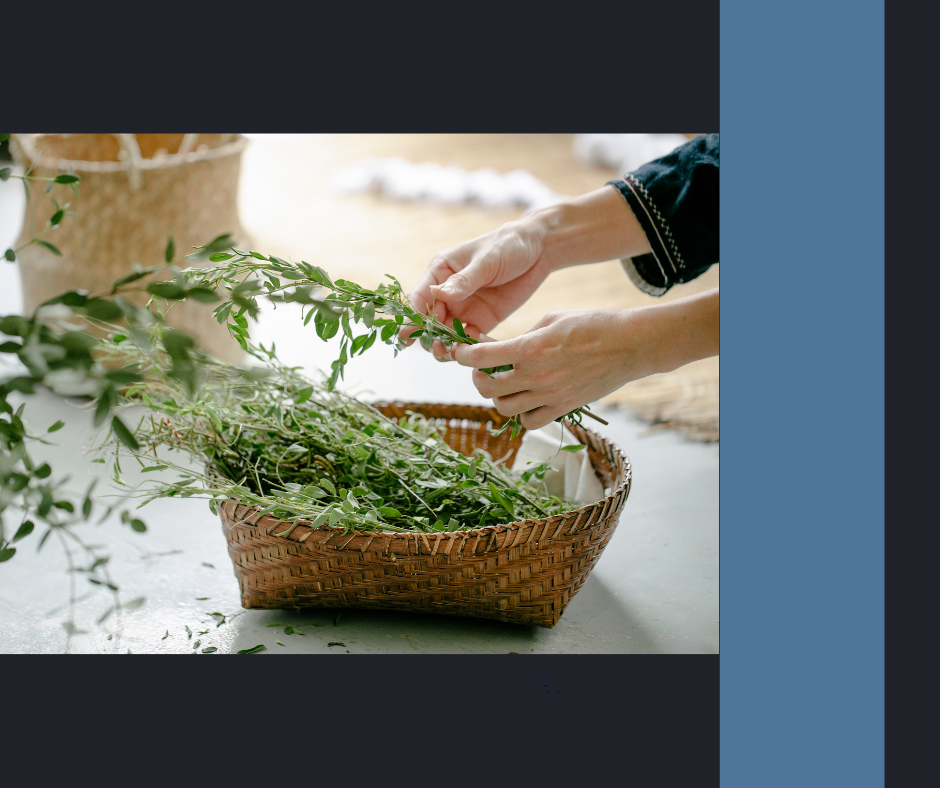
Herbs to Grow in Your Garden: For Health and Flavor
Share
When it comes to being prepared, one of the best investments you can make is in your garden. Fresh produce is essential, but don’t overlook the power of herbs. Herbs are compact, easy to grow, and pack a big punch—both in flavor and in medicinal value. Whether you have a sprawling backyard or just a few pots on your porch, herbs can be an important part of your preparedness plan.
Why Grow Herbs?
- Low Maintenance: Most herbs thrive in small spaces and don’t require much upkeep.
- Flavor Boosters: A pinch of fresh herbs can transform even the simplest meal.
- Medicinal Value: Many herbs double as natural remedies, giving you first-line support for common ailments when medicine is hard to come by.
- Preservation-Friendly: Herbs dry, freeze, or infuse easily into oils, vinegars, or teas for long-term storage.
Top Herbs to Grow
1. Basil (Ocimum basilicum)
- Uses in the Kitchen: Fresh basil elevates pasta, salads, and sauces.
- Medicinal Benefits: Basil has antibacterial properties and may help reduce inflammation and calm stress.

2. Thyme (Thymus vulgaris)
- Uses in the Kitchen: Excellent for soups, roasted meats, and stews.
- Medicinal Benefits: Traditionally used for coughs, sore throats, and respiratory infections. A thyme tea can help soothe congestion.
3. Mint (Mentha spp.)
- Uses in the Kitchen: Great for teas, desserts, and refreshing drinks.
- Medicinal Benefits: Aids digestion, helps ease nausea, and can relieve headaches.

4. Oregano (Origanum vulgare)
- Uses in the Kitchen: Classic in Italian, Greek, and Mexican dishes.
- Medicinal Benefits: Rich in antioxidants and antimicrobial compounds. Oregano oil is often used for fighting off colds and flu.

5. Chamomile (Matricaria chamomilla)
- Uses in the Kitchen: Dried chamomile flowers make a calming tea.
- Medicinal Benefits: Known for promoting sleep, reducing anxiety, and soothing upset stomachs.

6. Lavender (Lavandula angustifolia)
- Uses in the Kitchen: Can be used sparingly in baked goods, teas, and syrups.
- Medicinal Benefits: Popular for relaxation, stress relief, and as a natural sleep aid. Lavender oil can also soothe minor burns and insect bites.

7. Echinacea (Echinacea purpurea)
- Uses in the Kitchen: Roots and flowers are often made into teas or tinctures.
- Medicinal Benefits: Supports the immune system and may help shorten the duration of colds.

8. Rosemary (Rosmarinus officinalis)
- Uses in the Kitchen: Excellent with roasted meats, potatoes, and breads.
- Medicinal Benefits: Traditionally used to improve memory and focus. Also contains compounds that may help with circulation and digestion.

9. Calendula (Calendula officinalis)
- Uses in the Kitchen: Petals can be used in salads or teas.
- Medicinal Benefits: Known for skin-healing properties. Often made into salves to treat cuts, scrapes, and rashes.

10. Lemon Balm (Melissa officinalis)
- Uses in the Kitchen: Lovely in teas and fruit dishes.
- Medicinal Benefits: Helps with anxiety, sleep problems, and digestive issues. Its antiviral properties may also be useful for cold sores.
BONUS: Garlic (Allium sativum)
Garlic isn’t technically an herb—it’s a bulb—but it deserves a place in every preparedness garden. Its powerful flavor and proven medicinal properties make it one of the most valuable plants you can grow.
- Kitchen Use: A staple in countless cuisines, garlic adds depth to soups, sauces, roasted vegetables, and meat dishes. It can also be fermented into black garlic for a sweeter, antioxidant-rich option.
-
Medicinal Uses:
- Immune Support: Garlic is traditionally used to ward off colds and infections.
- Antimicrobial: Contains allicin, a compound with antibacterial, antiviral, and antifungal activity.
- Heart Health: Shown to support healthy cholesterol levels and blood pressure.
Preparedness Tip: Garlic stores well for months when cured and kept in a cool, dry place. You can also pickle garlic cloves in vinegar, dehydrate them into powder, or plant extra bulbs to keep your supply going year after year.

Growing and Preserving Herbs
- Grow in Pots or Beds: Many herbs thrive in containers—perfect if you’re short on space.
- Drying: Hang small bundles upside down in a dark, dry place, then store in airtight jars.
- Freezing: Chop herbs and freeze in ice cube trays with olive oil for easy cooking use.
- Infusions: Steep in vinegar, honey, or oil to preserve flavors and medicinal qualities.
- Tinctures: Alcohol-based extracts provide long-lasting potency.
Preparedness Tip
Herbs won’t replace all medications, but they are a valuable addition to your preparedness toolkit. Having a supply of medicinal and culinary herbs means you can add flavor to meals, treat minor ailments naturally, and increase your self-reliance—all from your backyard or windowsill.
No fuss. No fluff. No fear.
Other Article You Might be Interested In:
Natural Remedies to Include in Your Emergency Supplies
How to Grow Food in Pots: A Simple Guide to Container Gardening
Growing Food Indoors: A Guide to Fresh, Homegrown Produce
How to Start a Garden: A Beginner's Guide to Growing Your Own Food
Essential First Aid and Medical Supplies for Emergency Preparedness
